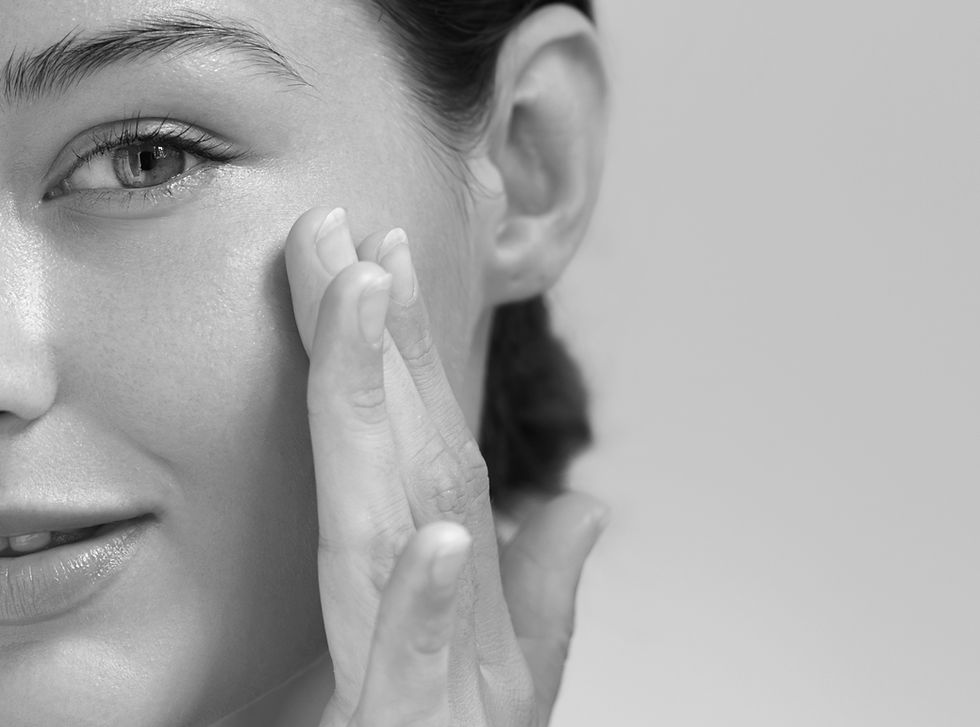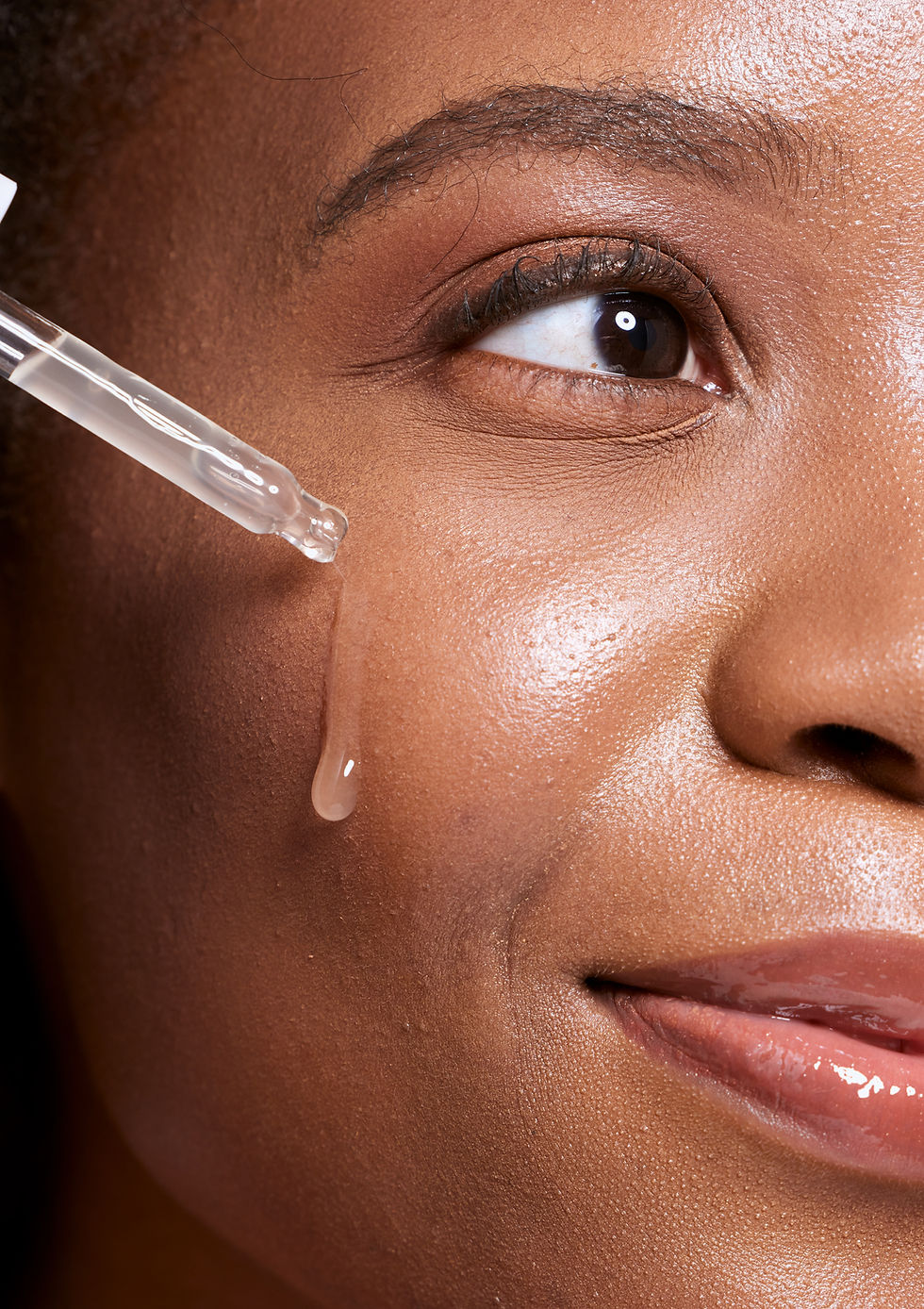
FACE & NECK POLYNUCLEOTIDES
Treatment is suitable for both younger patients looking to maintain healthy skin and older patients seeking to improve age-related changes.
A typical treatment plan consists of 3 sessions spaced 3–4 weeks apart, with results gradually improving as the skin remodels. Optimal effects are usually seen a few weeks after completing the course. Results generally last 6–12 months, with maintenance recommended.
At Derma Mayfair, all polynucleotide treatments are performed by a qualified doctor, ensuring precise, safe, and natural-looking results.
Please note: Polynucleotides are a medical injectable treatment. A full medical and psychosocial assessment is required to determine clinical appropriateness before treatment. Treatments are only provided where there is a clear therapeutic benefit, and we reserve the right to decline treatment if it is not deemed clinically suitable.
Polynucleotides are regenerative injectables derived from purified DNA fragments. They stimulate tissue repair, collagen and elastin production, and deep hydration to improve overall skin health.
They improve skin tone, texture, and elasticity, helping to reduce fine lines, crepiness, and laxity. The treatment restores radiance and hydration for healthier-looking skin.
Results develop gradually. Many clients notice improvements in hydration and glow within a few weeks, with the best results seen after completing the course of 3 treatments.
Results typically last 6–12 months, depending on individual factors. Maintenance sessions can prolong and enhance the effect.
No. Unlike fillers, polynucleotides don’t add volume. They regenerate and restore skin quality. Compared with Profhilo, polynucleotides focus more on healing, elasticity, and tissue repair, making them especially effective for crepey or ageing skin.
Yes. Polynucleotides are biocompatible and well tolerated. As with all injectables, mild redness, swelling, or bruising can occur at the injection site, but these effects are temporary.
Most clients find the procedure tolerable. The injections are delivered with a fine needle or cannula, and numbing cream can be used if required.
The face and neck are the most popular areas, but polynucleotides can also be used on the décolletage, hands, and other areas of skin laxity.
Yes. They can be combined with dermal fillers, anti-wrinkle injections, and other skin boosters (such as Profhilo) to enhance results.
Polynucleotides are an innovative regenerative injectable treatment designed to improve skin quality, hydration, and elasticity by stimulating the body’s natural repair mechanisms. Unlike dermal fillers, which add volume, polynucleotides work at a cellular level to restore skin health, promote collagen and elastin production, and encourage long-term rejuvenation.
Polynucleotides work beneath the surface to hydrate the skin intensely, restoring a healthy, radiant glow.
By stimulating collagen and elastin, treatment improves skin elasticity and firmness, helping to reduce laxity in the face and neck.
Polynucleotides smooth the appearance of fine lines and wrinkles, leaving the skin looking fresher and more refined.
Target crepey or sun-damaged skin with a treatment that restores vitality and delivers a naturally youthful complexion.


Treatment is suitable for both younger patients looking to maintain healthy skin and older patients seeking to improve age-related changes.
A typical treatment plan consists of 3 sessions spaced 3–4 weeks apart, with results gradually improving as the skin remodels. Optimal effects are usually seen a few weeks after completing the course. Results generally last 6–12 months, with maintenance recommended.
At Derma Mayfair, all polynucleotide treatments are performed by a qualified doctor, ensuring precise, safe, and natural-looking results.
Please note: Polynucleotides are a medical injectable treatment. A full medical and psychosocial assessment is required to determine clinical appropriateness before treatment. Treatments are only provided where there is a clear therapeutic benefit, and we reserve the right to decline treatment if it is not deemed clinically suitable.
Polynucleotides are regenerative injectables derived from purified DNA fragments. They stimulate tissue repair, collagen and elastin production, and deep hydration to improve overall skin health.
They improve skin tone, texture, and elasticity, helping to reduce fine lines, crepiness, and laxity. The treatment restores radiance and hydration for healthier-looking skin.
Results develop gradually. Many clients notice improvements in hydration and glow within a few weeks, with the best results seen after completing the course of 3 treatments.
Results typically last 6–12 months, depending on individual factors. Maintenance sessions can prolong and enhance the effect.
No. Unlike fillers, polynucleotides don’t add volume. They regenerate and restore skin quality. Compared with Profhilo, polynucleotides focus more on healing, elasticity, and tissue repair, making them especially effective for crepey or ageing skin.
Yes. Polynucleotides are biocompatible and well tolerated. As with all injectables, mild redness, swelling, or bruising can occur at the injection site, but these effects are temporary.
Most clients find the procedure tolerable. The injections are delivered with a fine needle or cannula, and numbing cream can be used if required.
The face and neck are the most popular areas, but polynucleotides can also be used on the décolletage, hands, and other areas of skin laxity.
Yes. They can be combined with dermal fillers, anti-wrinkle injections, and other skin boosters (such as Profhilo) to enhance results.







